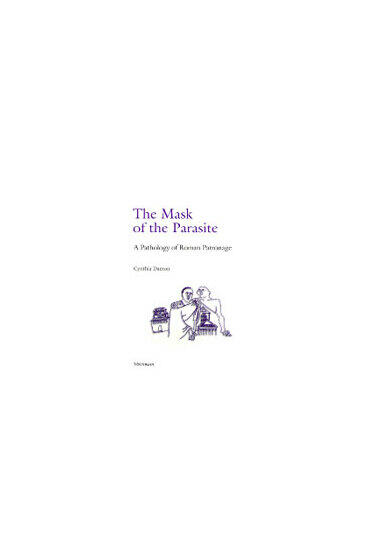The Mask of the Parasite
A Pathology of Roman Patronage
A much-needed cultural study of parasitic people in Roman drama, politics, and society
Description
When Romans applied the term "parasite" to contemporaries in dependent circumstances, or clientes, they were evoking one of the stock characters of ancient Greek comedy. In the Roman world the parasite was moved out of his native genre into the literatures of invective and social criticism, where his Greek origins made him a uniquely useful transmitter of Roman perceptions. Whenever the figure of the parasite is used to mask a person in Roman society, we know that an effort of interpretation is underway. The fit between the mask and its wearer is in the eyes of the beholder, and in Rome the mask seemed to fit people in many different situations: entrepreneurs, tax-farmers, lawyers, female companions, philosophers, and poets.
In The Mask of the Parasite, Cynthia Damon maintains that the parasite of Latin literature is a negative reflection of the cliens. In Part One she assembles a composite picture of the comic parasite using as evidence fragments of Greek comedy, works from Greek writers of the imperial period whose works reflect the comic tradition, and the ten complete plays of Roman comedy in which a parasite appears. In parts two and three she examines the ways in which Cicero and the satirists use the figure of the parasite: Cicero in belittling his opponents in court, Horace and Martial in creating a negative foil for the poeta cliens, Juvenal in painting contemporary patron/client relationships as morally and spiritually bankrupt.
The Mask of the Parasite is a fascinating study of the intersection of literature and society in ancient Rome. However, neither the parasite nor patronage is confined to the Roman world. Students of classical studies as well as students of literature and cultural studies will find this to be a work of utmost importance in understanding these complex issues of human interaction.
Cynthia Damon is Assistant Professor of Classics, Amherst College
Cynthia Damon is Assistant Professor of Classics, Amherst College.

